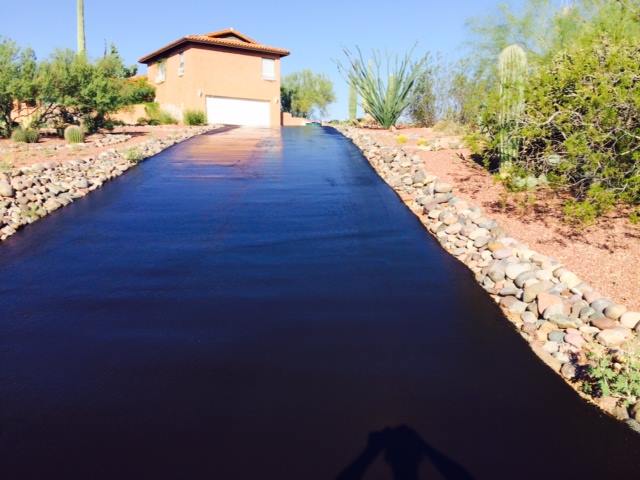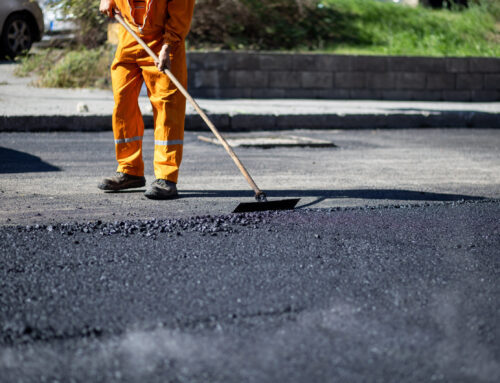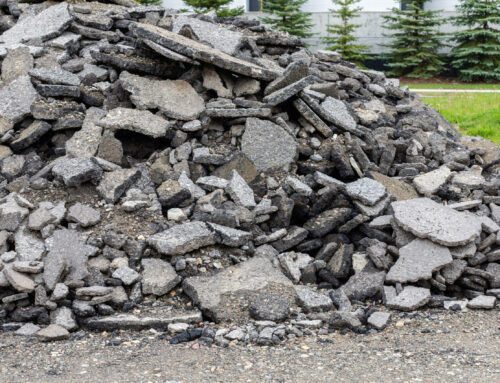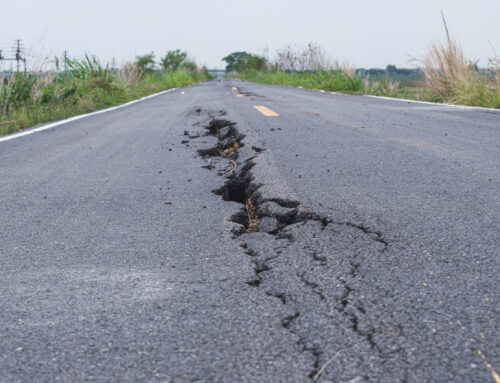Welcome back to another Sunrise Asphalt blog! Did our last entry get you pumped for pavement? Good! And if our guys just recently finished up giving you a slick new pitch-black surface outside your business you may be wondering ‘What next? How long will this last? Just how long is it until I get a pothole?’
All fair questions, after all, asphalt surfaces endure a lot of punishment day in and day out. They are not your grandmother’s china, placed up in the nook for only special occasions. Hummers drive over this stuff by the day! So, knowing what fate lies ahead of them, how do you prepare that fresh new asphalt driveway?
First, if you’re in the Tucson area, we recommend you give us a call! Sealcoating is one of our (many) specialties and we’d be happy to do the job for you! If not or you need to do the job yourself, here are the things to keep in mind!
Why is sealing necessary? Without it the asphalt surface is exposed. To heat, sunlight, salt, water, and of course, wear and tear. Under all of these, exposed asphalt will breakdown, allowing for even further, more drastic damage. We have talked about the source of cracks and potholes elsewhere on the blog but since it is pertinent here we will relay the basics. Moisture gets into the asphalt through cracks, then the asphalt weakens. If the temperature fluctuates into freezing, you know have ice developing in and under the surface, expanding and retracting in the temperatures. As the surface endures pressure it causes the driveway to shift and boom, you got yourself a full-blown pothole. No good!
Best Time to Seal Asphalt
So your asphalt driveway is freshly installed. Great! But before you go looking to seal, you need to do one thing: Wait. That’s right, asphalt when it is first laid is not entirely hard through and through. This can take up to 9 months to fully harden. The oils in the surface of the asphalt need time to evaporate and make the asphalt hard, if you were to seal immediately those oils would remain in the asphalt and doom it remaining soft. This is the not for the best. So, after 6 to 9 months, when the driveway has fully hardened, then it is time to make the first pass with the sealer!
How Often to Seal
That’s right we said first pass. That’s because sealer, while long lasting, is not a one and done procedure. Depending on wear and tear and weather conditions, as everything does, asphalt driveways should be sealed every two to three years or so. That’s the industry standard. Sealing once will see your asphalt lasting through those first few years but after leaves it once again vulnerable to the exposures that will deteriorate it.
Brief How-To
Like all good things, a little bit of prep will go a long way when it comes to your asphalt sealing. Wait for a cloudy day, not rainy mind you, but overcast. If there is too much sun, the sealer can become harder to spread as it dries quickly. If you must, or because you like us are living in Arizona and cloudy days are something of a rarity, make sure to wet the driveway before applying the sealer.
Apply the sealer to the edges first, then pour and spread evenly and slowly using a squeegee. Wait up to 24 hours for it to dry completely (don’t let any vehicles drive over it until then!) and you’ll be in good shape for a few years!
Those are the basics! We know a lot about sealcoating as it is one of our specialties, and if you have a big project that could use a more expert hand, give us a call and we’d be happy to assist you. Expert installations will always last longer than an amateur attempt, and experts we are, having worked in the Tucson area for over 30 years! We even have a new kind of seal called Slurry Seal you should be sure to check out!
We’ll see you back here next month, until then we hope you are out there enjoying the local events Tucson has to offer and may your never hit a pothole!





